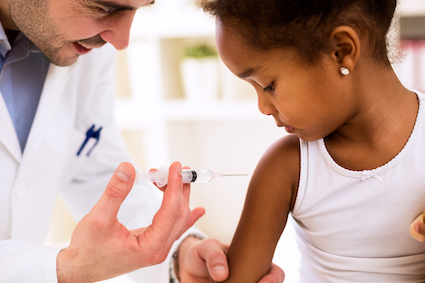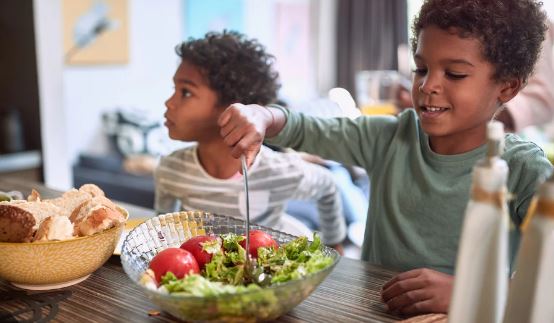
Health care officials consider vaccines a crucial tool in preventing infections and severe illness from COVID-19. However, approved vaccines are not yet available for children under the age of five, and some families remain unsure about whether to vaccinate their children at all.
The Centers for Disease Control and Prevention report that 9 million children between ages 5 and 11 in the United States (32%) have received at least one dose of the COVID-19 vaccine (as of February 22). Child vaccination rates differ across states. With about one-third of eligible children fully immunized against COVID-19, Colorado is currently above the national average.
In Spring of 2021, before a vaccine had been authorized for children between 5 and 11, Early Milestones surveyed Colorado families with children ages 12 and under to understand their plans and opinions around vaccines for their children. Less than half (46%) of respondents indicated plans to vaccinate their children. One in four (24%) said they would not vaccinate their children.
Of the families who were hesitant or entirely against vaccinating their children, two in five (43%) were concerned that vaccines had not been tested in younger children, and 41% worried about potential side effects. One-tenth (10%) did not consider vaccinations necessary. When asked what factors would make them feel comfortable vaccinating their children, 40% indicated a need for scientific evidence of safety or authorization by the Food and Drug Administration (FDA). About one-fifth said they would need to consult with their health care provider.
“I feel as though no one knows enough about the virus [or] the vaccine to convince me.”
An ongoing national study by the Kaiser Family Foundation (KFF) monitoring attitudes towards COVID-19 vaccinations finds similar reasons for parent’s vaccine hesitancy. Among parents who did not plan to vaccinate their children between ages 5 and 11, 18% cited a need for more information and research. Parents also cited concerns about side effects or reactions (14%) and the belief that the vaccine is not necessary for children (9%). KFF’s research also finds that among parents of unvaccinated children ages 5 to 17, Black, Latinx, and parents with incomes below $40,000 were more likely than white parents and those with higher incomes to express concerns about accessing vaccines for their children. Specific barriers to access include the need to take time off work, not being able to get their child vaccinated by a provider they trust, and transportation difficulties.
Parents and caregivers are eager for information about the safety of COVID-19 vaccines for children. As development of a vaccine for children under five nears FDA authorization, public health officials should prioritize communications plans that help families make informed decisions about vaccinating their children. Messages must convey evidence of vaccine efficacy for young children and a clear understanding of side effects and other risks. Experts suggest that now is a good time for parents to make sure their children are up to date on routine vaccinations (e.g., measles, influenza) to prevent additional outbreaks. Officials can also ensure the vaccine delivery systems support equitable opportunities for families to access the vaccine for their young children, especially in communities where barriers to access are more prevalent.
There is a pressing need for state and local systems to better support parents and caregivers who are already experiencing challenges from school and child care closures, pandemic fatigue, and evolving risks to their own health and that of their loved ones. That begins with ensuring families have reliable information to make decisions about their children’s health.
“Three members of our family have risk factors related to COVID, so we are very diligent on following recommended precautions… We are anxious to receive our vaccines and are looking forward to when an approved vaccine will be available for children.”





